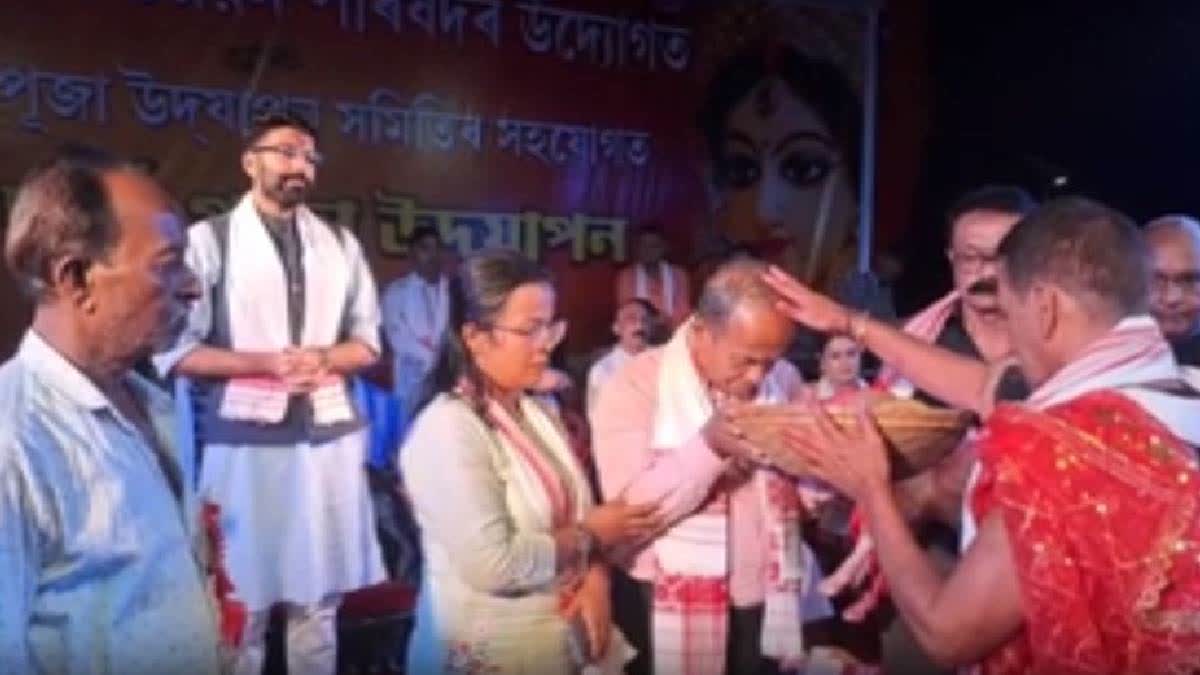Shivasagar (Assam): Durga Puja of Sivasagar Devi Doul in Assam cites an example of religious harmony wherein the prasad is offered a Muslim family.
The religious offering made to Goddess Durga on Maha Ashtami is shared with the Muslim Daulla family, who once played nagara and dhak in Devi Doul. Again, the same prasad is also shared with the family of Konseng Borpatra Gohain. This tradition is being observed since the days of Ahom dynasty.
The Maha Ashtami puja is performed in accordance with the religious rituals of the historic Shiva Dal in Sivasagar, which is about 290 years old. On this day, 400 ducks and goats are sacrificed before the deity.
This year too, the Maha Ashtami prasad was shared with the Daulla family of Sivasagar on Sunday evening. Also, it was given to the family of Konseng Borpatra Gohain, an officer of the Ahom kingdom.
During the regime of Ahom Swargadeu Shiva Singha, Bararaja Ambika (Ahom Queen) dug a large pond in Kalanchuparia village and constructed three douls. The Muslim Daulla family members used to play the nagara and dhak during Durga Puja at Devi Doul and so were made part of the pujas thus reflecting the religious harmony of the Ahom kingdom.
Although with the passage of time the tradition of the Daulla family to play nagara and dhak in the Devi Doul has stopped, as a mark of respect for the work of their forefathers, the prasad of the Ashtami Puja of Devi Doul is now offered to the Daulla family.
Also Read: Kolkata's Durga Puja pandals transform with unique themes, sending powerful messages
This act has assumed a great significance in the midst of ongoing conflicts in the name of religion. This tradition implies that there was no division or contradiction in Assamese society around religion in the past and sends a message that divisions on religious lines can never destroy the Assamese society.
Also Read: At Guwahati's historic Kamakhya temple, celebration of Durga Puja without idols



